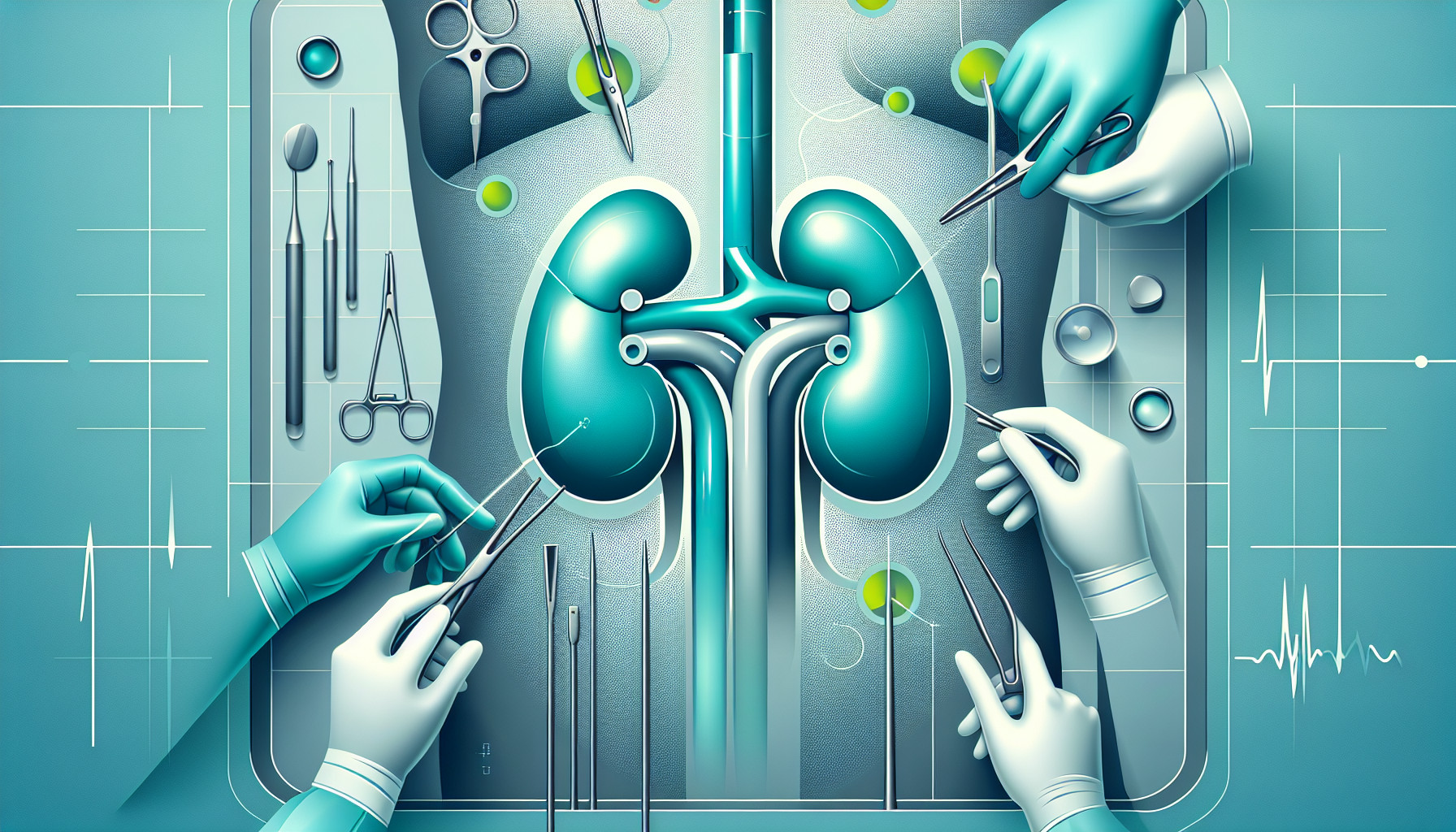Our Summary
This research paper reviews the economic and quality of life impacts of antibody-mediated rejection (ABMR) in kidney transplants. ABMR is a major reason why kidney transplants fail over time. The researchers looked at 21 studies, 9 of which specifically focused on ABMR. They found that ABMR-related transplant rejection places a higher economic burden and has a greater negative impact on patients’ quality of life than non-ABMR transplant rejection. However, the researchers point out that the small size of the studies and lack of clear definitions for ABMR makes it hard to compare results. They also note that there aren’t currently any specific medical codes to describe different causes of transplant rejection, making it difficult to study this issue. They recommend creating more specific codes to facilitate further research.
FAQs
- What is antibody-mediated rejection (ABMR) in kidney transplants?
- How does ABMR-related transplant rejection impact the patient’s quality of life and economy compared to non-ABMR transplant rejection?
- What are the challenges in studying ABMR as per this research paper?
Doctor’s Tip
A doctor might tell a patient about kidney transplant:
“It is important to closely follow your medication regimen and attend all follow-up appointments to monitor for any signs of rejection. If you experience any symptoms such as fever, swelling, or decreased urine output, it is crucial to notify your healthcare team immediately. Additionally, maintaining a healthy lifestyle with regular exercise and a balanced diet can help support the success of your kidney transplant.”
Suitable For
Patients who are typically recommended for kidney transplant are those with end-stage renal disease (ESRD) who are not able to maintain a good quality of life on dialysis or other medical treatments. These patients may have conditions such as chronic kidney disease, diabetes, hypertension, polycystic kidney disease, or other kidney-related issues that have progressed to the point where a transplant is necessary. Additionally, patients who have a suitable donor (either living or deceased) and who are medically stable enough to undergo surgery and follow the post-transplant care regimen are also considered good candidates for kidney transplant.
Timeline
Before kidney transplant:
- Patient is diagnosed with end-stage renal disease and begins dialysis treatment
- Patient undergoes evaluation and testing to determine eligibility for kidney transplant
- Patient is placed on the transplant waiting list and waits for a suitable donor
- Once a donor is found, patient undergoes surgery to receive the new kidney
After kidney transplant:
- Patient goes through a recovery period in the hospital
- Patient must take immunosuppressive medications to prevent rejection of the new kidney
- Patient undergoes regular monitoring and follow-up appointments to ensure the success of the transplant
- Patient may experience complications such as infection, organ rejection, or side effects from medication
- Over time, patient’s kidney function may improve and quality of life may be significantly better compared to when they were on dialysis.
What to Ask Your Doctor
- What is antibody-mediated rejection (ABMR) and how does it differ from other types of transplant rejection?
- What are the risk factors for developing ABMR after a kidney transplant?
- What are the symptoms of ABMR and how is it diagnosed?
- What treatment options are available for ABMR and what are the success rates?
- How does ABMR impact the long-term success of a kidney transplant?
- What are the potential complications or side effects of treating ABMR?
- How often will I need to be monitored for ABMR after a kidney transplant?
- Are there any lifestyle changes or medications that can help prevent ABMR?
- What resources are available for support and information about ABMR?
- Are there any ongoing clinical trials or research studies related to ABMR that I should be aware of?
Reference
Authors: Moss E, Burrell A, Lee J, Reichenbach D, Mitchell S, Yan S, Thiruvillakkat K. Journal: Expert Rev Pharmacoecon Outcomes Res. 2024 Mar;24(3):343-352. doi: 10.1080/14737167.2024.2305140. Epub 2024 Jan 29. PMID: 38284281
